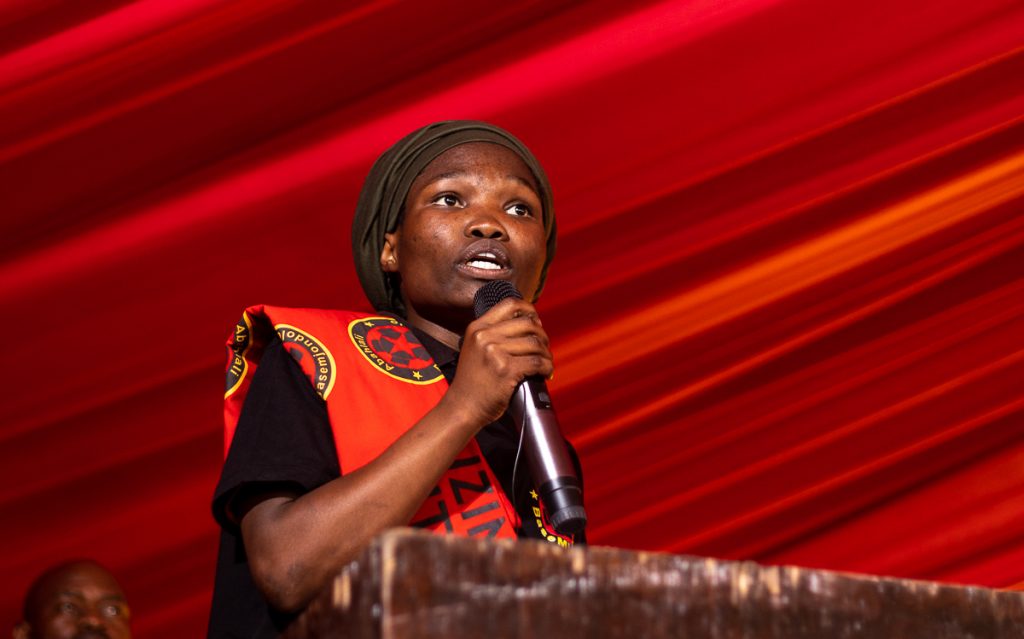
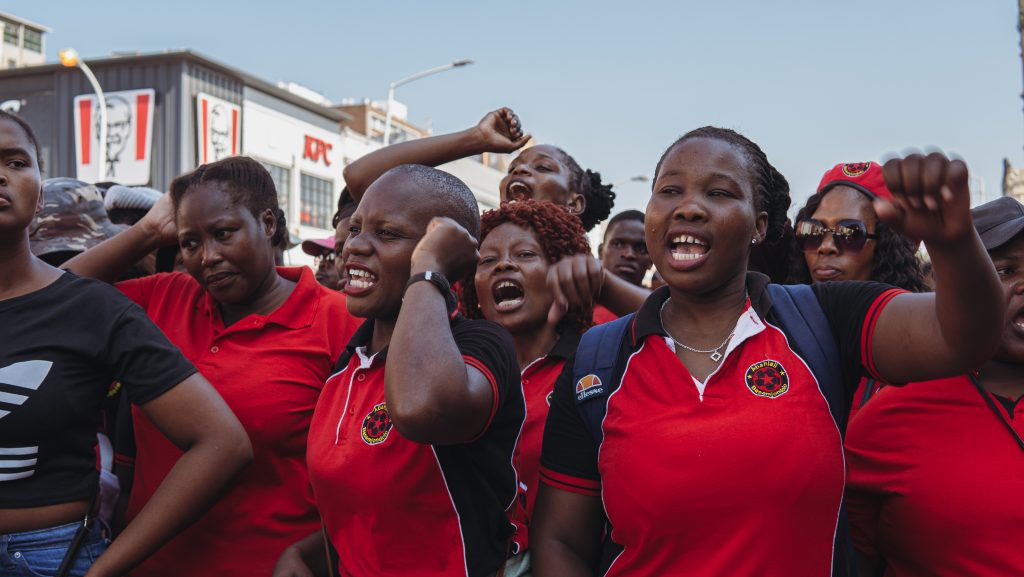

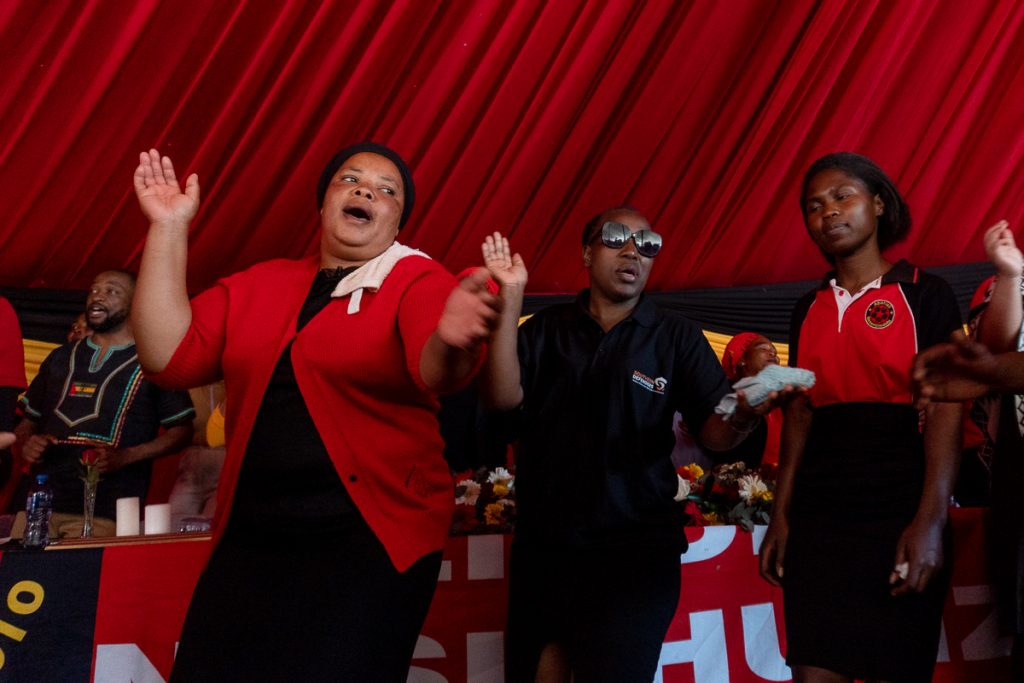
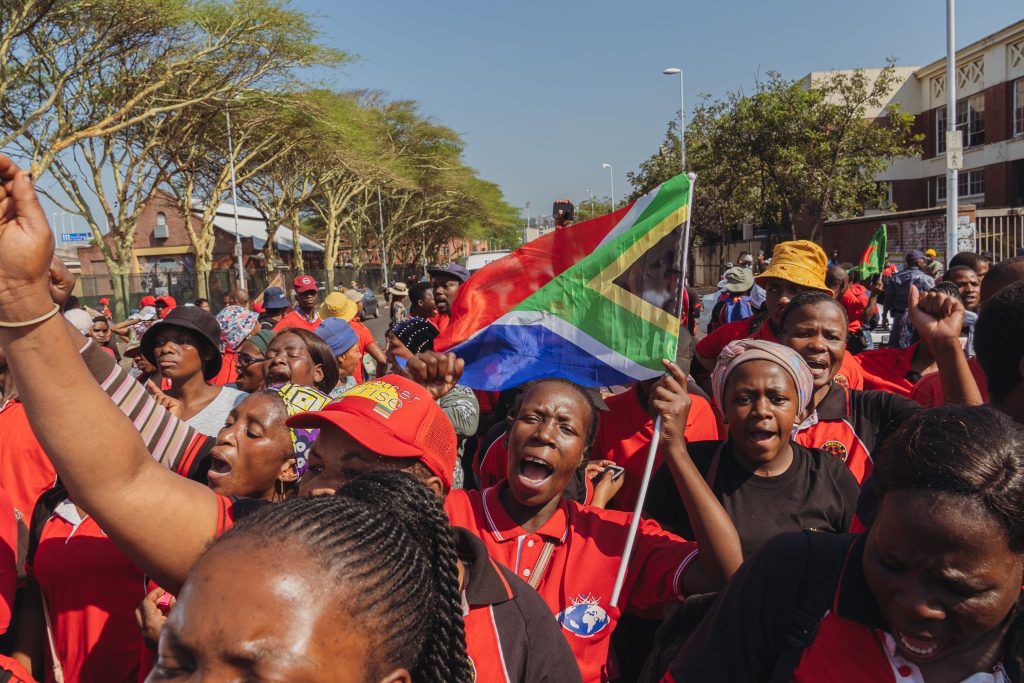
LAND! HOUSING! DIGNITY!
Who we are
We are a movement of over 180,000 shack dwellers.
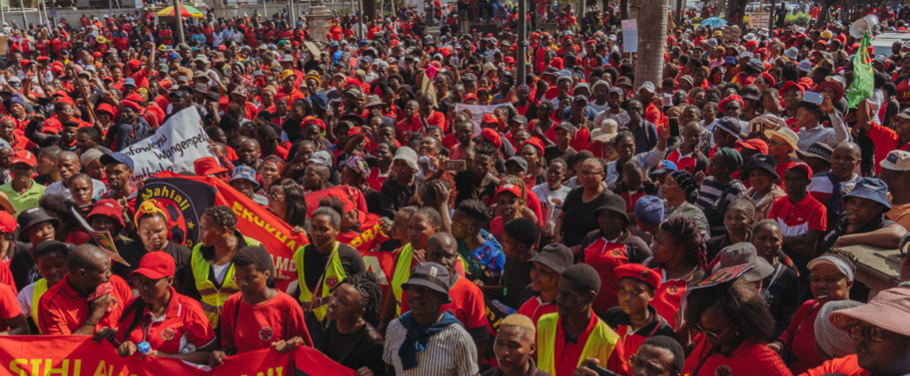
WE FIGHT for land and against the relentless vandalisation of our dignity.
WE LIVE in life-threatening conditions without water, sanitation, road access, waste collection, and electricity.
WE ENDURE sustained political repression, including assault, arrest, torture, imprisonment, murder, and the criminalisation of protests.
WE DEMAND land, housing, dignity, justice, and food sovereignty for all.
WE ARE Abahlali baseMjondolo — a democratic movement building power from below.
What we do
ORGANISING FROM BELOW
We work to grow democratic counter-power from below by building branches and creating spaces for thinking and resisting together.
RESISTING INJUSTICE
We resist evictions and repression, organise protests, provide legal support, and engage the media in our struggle against violence, corruption, and injustice.
RECLAIMING LAND
We occupy land to create places for people to live and build communities.
DEVELOPING COMMUNES
We strive to advance our occupations into vibrant communes that develop social infrastructure, produce food and work towards other forms of production.
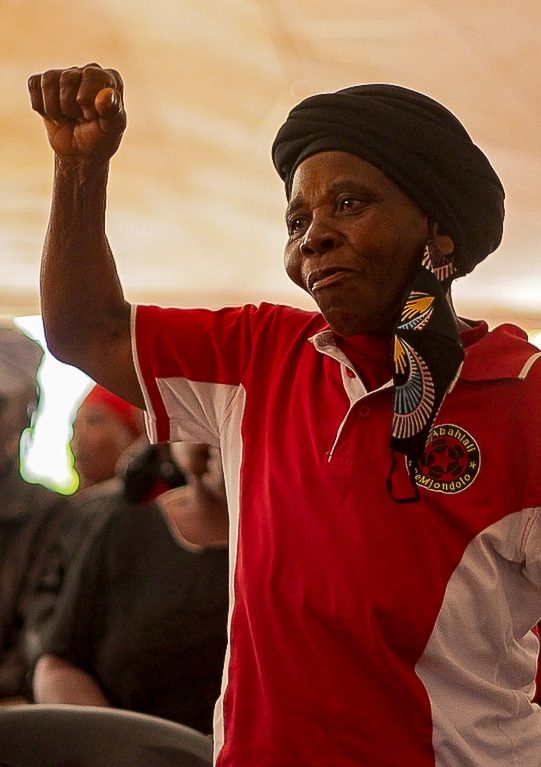
About us
Abahlali baseMjondolo (The Residents of the Shacks) is a movement of the poor in South Africa. We are an autonomous, democratic, membership-based social movement comprising more than 150,000 members, operating in 93 branches in 4 provinces. We are committed to building the democratic power of the oppressed from below, and using our collective strength to create a world in which land, wealth and power are shared fairly. Our politics is rooted in a universal commitment to affirming and defending human dignity as we struggle for land and housing, to foster communities of care, self-nourishment, and solidarity.
LEARN MORE